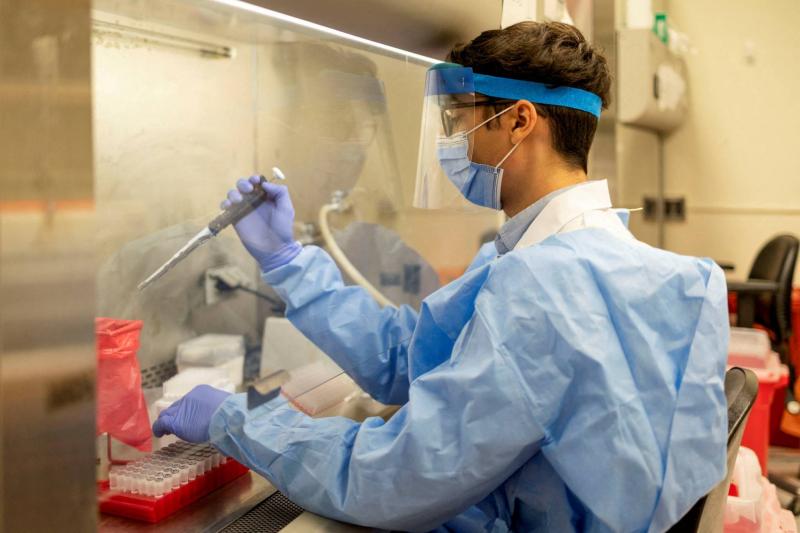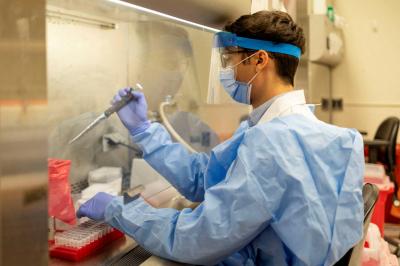A senior official from the World Health Organization stated that a highly mutated COVID-19 variant, named (BA.2.86), has been detected in Switzerland, South Africa, Israel, Denmark, the United States, and the United Kingdom. The (BA.2.86) variant, one of the Omicron mutations, has over 35 mutations in key parts of the virus's structure compared to the (XBB.1.5) variant, which has been predominant for most of 2023. This number of mutations is nearly equivalent to the Omicron variant that caused a record number of infections compared to its predecessor. The variant was first identified in Denmark on July 24 and has since been found in several countries among symptomatic patients and in routine airport tests and samples from wastewater.
Twelve scientists from around the world have noted that despite the importance of tracking the (BA.2.86) variant, it is unlikely to cause a massive wave of severe infections and deaths due to vaccination-induced immunity and prior infections globally. Maria Van Kerkhove, the WHO's Technical Lead for COVID-19, stated, "The numbers are still low," during her first interviews regarding (BA.2.86). She added that the lack of connections between known cases suggests that the disease is already circulating on a much larger scale, particularly because of declining monitoring of outbreaks worldwide.
Scientists are testing the effectiveness of modern COVID-19 vaccines against the (BA.2.86) variant. Kerkhove noted that vaccines are better at preventing severe disease and death than at preventing reinfection. Marion Koopmans, a Dutch virologist advising the WHO, mentioned, "We are in a very different stage (of the pandemic)."




